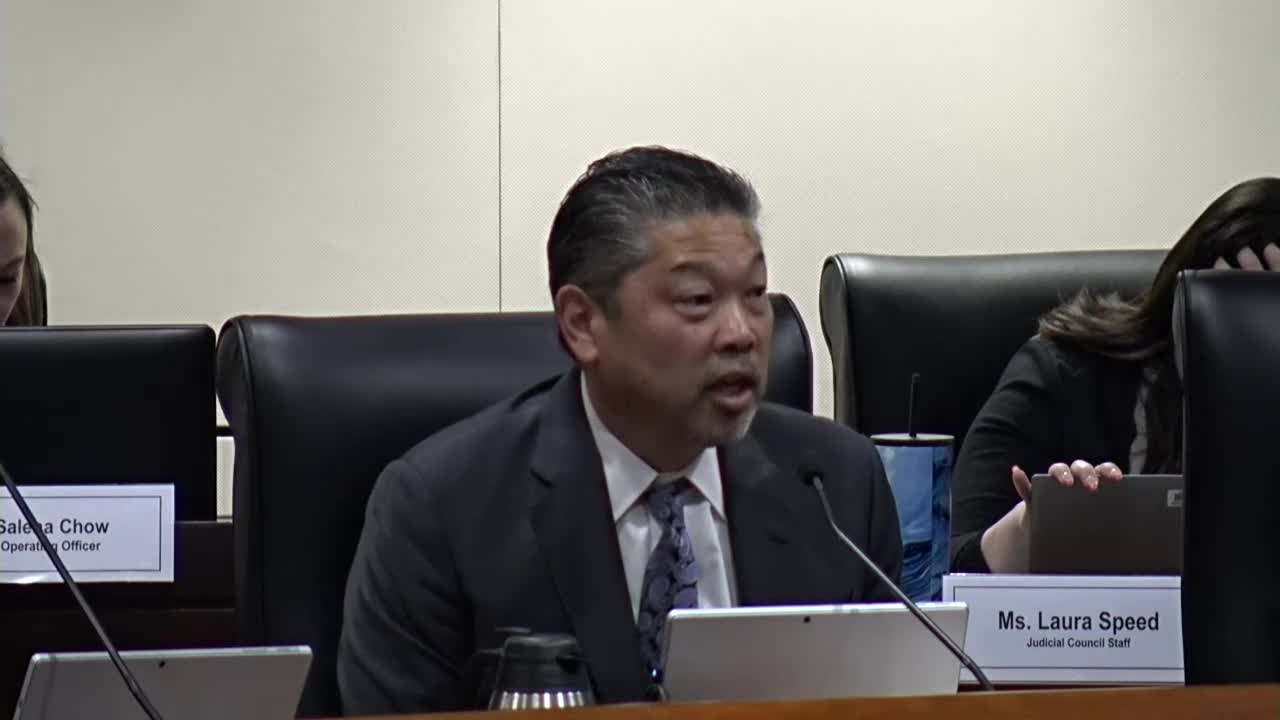Council adopts branch tactical plan for technology, adds emerging-technology initiative
Get AI-powered insights, summaries, and transcripts
Subscribe
Summary
The Judicial Council approved a 2025-26 tactical plan for technology that sustains existing initiatives (electronic evidence management, branch-wide information security, digital core) and explicitly adds an emerging-technology program to explore responsible adoption of AI and related tools.
The Judicial Council approved an updated two-year tactical plan for technology that reaffirms ongoing branch priorities (digital core, expanded online services, information security) and establishes a new emerging-technology initiative to evaluate responsible, branch-wide uses of tools such as artificial intelligence.
Presenters from the Information Technology Advisory Committee (ITAC) said the plan narrows the tactical focus to initiatives with the broadest branch impact and the greatest operational or financial value. The plan groups initiatives into five pillars: foundational systems, integrations, public and partner services, data, and security and infrastructure. ITAC highlighted three priorities: electronic evidence management (more courts reporting pilots but most still in early stages), a sustained branch-wide information security program, and a new initiative to pilot and evaluate emerging technologies (aligned to the Chief Justice's AI task force).
ITAC said 13 trial courts reported progress on electronic evidence management (up from 5 in 2023), emphasising the need for branch guidance and potential branch-wide agreements. The committee also described branch progress on cybersecurity governance and readiness and noted a range of court-level proposals to use AI to improve operations in the IT modernization program. The council approved the tactical plan, which ITAC will use to guide project selection, advocacy, and funding requests.
